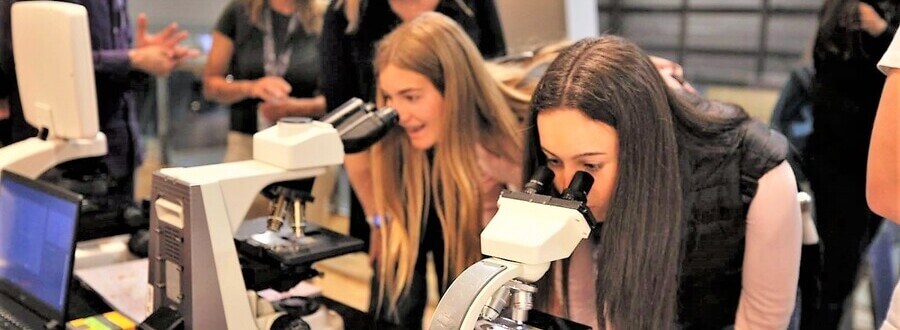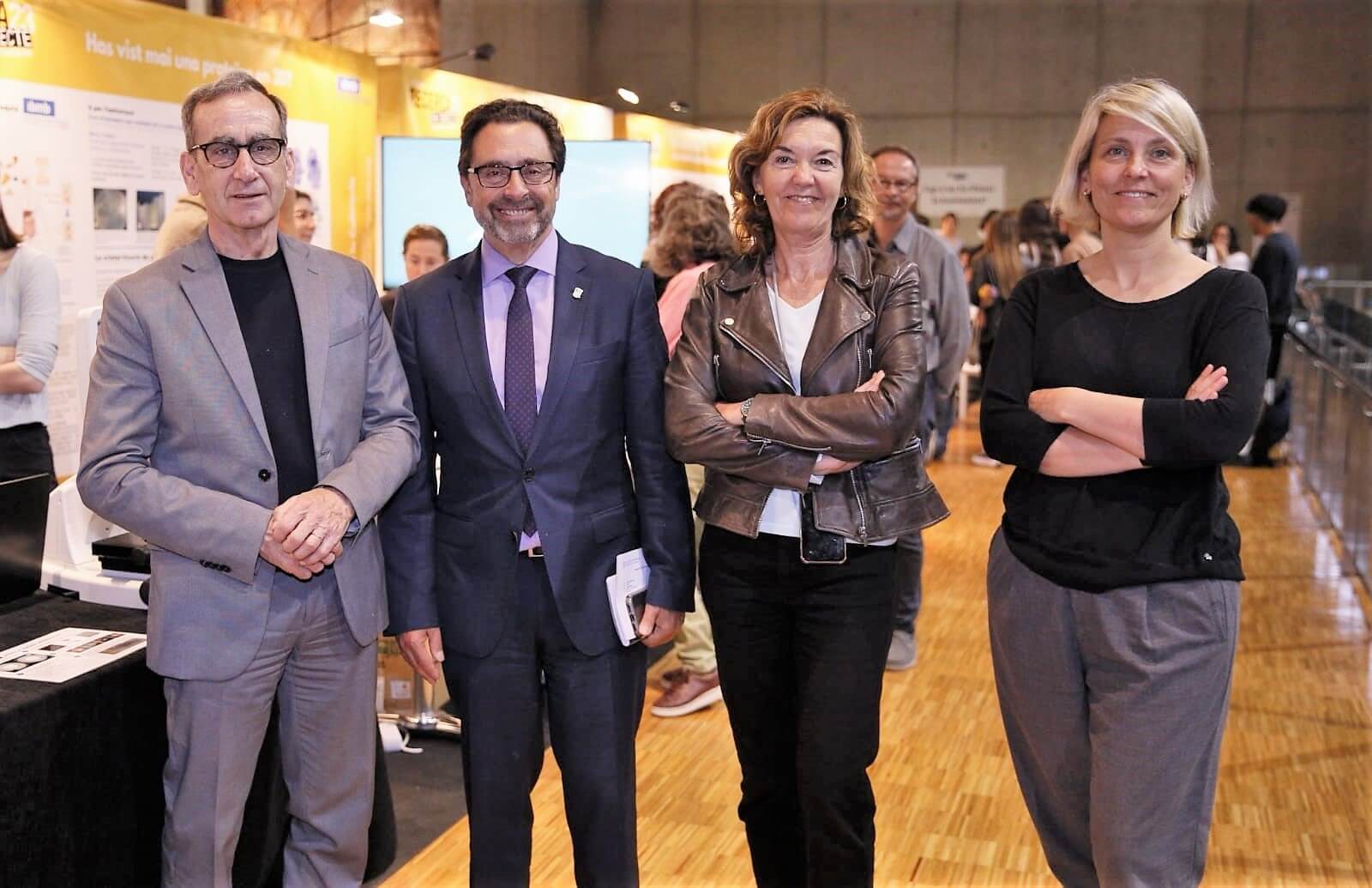
The 19th edition of the Live Research Fair holds the debate on the ethical limits of science
The 19th edition of the Live Research Fair opens its doors until Saturday at the CosmoCaixa Science Museum to familiarise society with science, promote scientific culture and encourage young people to consider STEM vocations. For another year running, the event, organised by the Barcelona Science Park and “la Caixa” Foundation bring together over 100 researchers from 11 research groups of leading public institutions throughout Catalonia to this emblematic space, so the attendees can participate in experiments linked to their current research projects, with the same instruments and equipment they normally use in the laboratory.
At the Fair, in which around 2,500 people are expected to participate, attendees can experiment with biological samples to observe neurones and brains affected by Alzheimer’s under a microscope; make protein crystals; discover photonic technologies and their impact on environmental protection; investigate how cancer is researched with bioinformatics; interpret antibiograms to evaluate the sensitivity of bacteria to antibiotics; obtain a genome and compare it to others; and even observe our galaxy and investigate how the data on 500 million stars is processed.
In addition, the three research projects which have won the latest edition of the PCB’s BATX2LAB programme will be exhibited at an individual stand so the award-winning students can explain the research project they have carried out to the public.
During the inauguration of the Fair, which took place yesterday, a guided tour was carried out with Joan Guàrdia, rector of the University of Barcelona; Maria Terrades, director of the Barcelona Science Park; Anna Font, director of the Department of Culture and Science Activities of the “la Caixa” Foundation; and Valentí Farràs, director of the CosmoCaixa Science Museum all present at the event.

Valentí Farràs, Joan Guàrdia, Maria Terrades and Anna Font during the inaugural visit (Photo: PCB).
From the ‘babies à la carte’… to transhumanism
The Barcelona Science Park and the Víctor Griffols i Lucas Foundation have prepared the didactic proposal “Where should humanity be heading?”, which poses three challenges on bioethics and research: ‘babies à la carte’, the creation of living organisms in the laboratory and ‘transhumanism’, which involves the enhancement of human beings through new technologies. The activity challenges the public to take a stand for or against these issues through their vote using an online application, or, in person, at the fair.
Within the framework of the fair, the Director of the Studies of Health Sciences of the Open University of Catalonia and Professor of molecular medicine at the University of Leicester, Salvador Macip, Doctor, Researcher, Writer and Spokesperson will lead various lively debates on these three bioethical challenges, in which 120 students will participate who will have worked on the activity in the classroom in advance. The material in this didactic proposal will also be made available to all educational centres visiting the fair.
The Live Research Fair forms part of Barcelona Science Park’s Research in Society programme, which involves more than 100 activities involving more than 6,500 people each year, and is supported by the Spanish Foundation for Science and Technology (FECYT), the Ministry of Science and Innovation and by Barcelona City Council.
According to Joan Guàrdia, rector of the University of Barcelona: “Research and the transfer of excellence, capable of breaking the frontiers of knowledge and improving both our societies and the well-being of citizens, can never be separated from scientific ethics. That is why, with our leadership in the research ecosystem, at the University of Barcelona we do not conceive of research where bioethics does not play a central role and is present in the entire process carried out by our research staff. A bet that acquires even more relevance with the process of strengthening the Diagonal Health axis that we are experiencing, with our Science Park as a reference space.”
In the words of Anna Font, Director of the Department of Culture and Science Activities of “la Caixa” Foundation: “The commitment of our institution with scientific dissemination is firm and permanent. Through the CaixaForum centres throughout the territory and the CosmoCaixa Science Museum we carry out activities such as this renowned fair which familiarise the public with science and is capable of encouraging scientific vocations in our young ones. Having the opportunity to speak face-to-face with researchers and make the projects their own allows us to expand our society’s knowledge of the vital importance of science in our lives.”
“In this edition,” explains Maria Terrades, “we wanted to introduce the debate on bioethics which is already very present, both in society and in the media, as well as in institutions such as ours, where training in bioethics applied to science dissemination activities is one of the actions planned in our Sustainability Plan to contribute to the Agenda 2030 goal to ensure quality education.”
Participating research institutions
In this edition of the Fair, more than 100 researchers from 11 research groups of two Catalan public universities collaborate: the University of Barcelona (UB), and the Autonomous University of Barcelona (UAB); five institutes holding the Severo Ochoa seal of excellence: the Institute of Materials Science of Barcelona (ICMAB-CSIC), the Institute of Cosmos Sciences of the University of Barcelona (ICCUB), the Institute of Photonic Sciences (ICFO), the Institute of Bioengineering for Catalonia (IBEC) and the Institute of Biomedical Research (IRB Barcelona); together with the Institute of Molecular Biology of Barcelona (IBMB-CSIC), the Barcelona Institute for Global Health (ISGlobal) and the Catalan Initiative for Earth BioGenome Project (CBP), promoted by the Institute for Catalan Studies (IEC).
» Entrance tickets, to the Live Research Fair is free from 18 to 21 April for schools, with prior booking. On Saturday, 22 April, the fair opens up to the public with the entrance ticket to the CosmoCaixa Science Museum.
» More information about the participating groups in this link [+]




